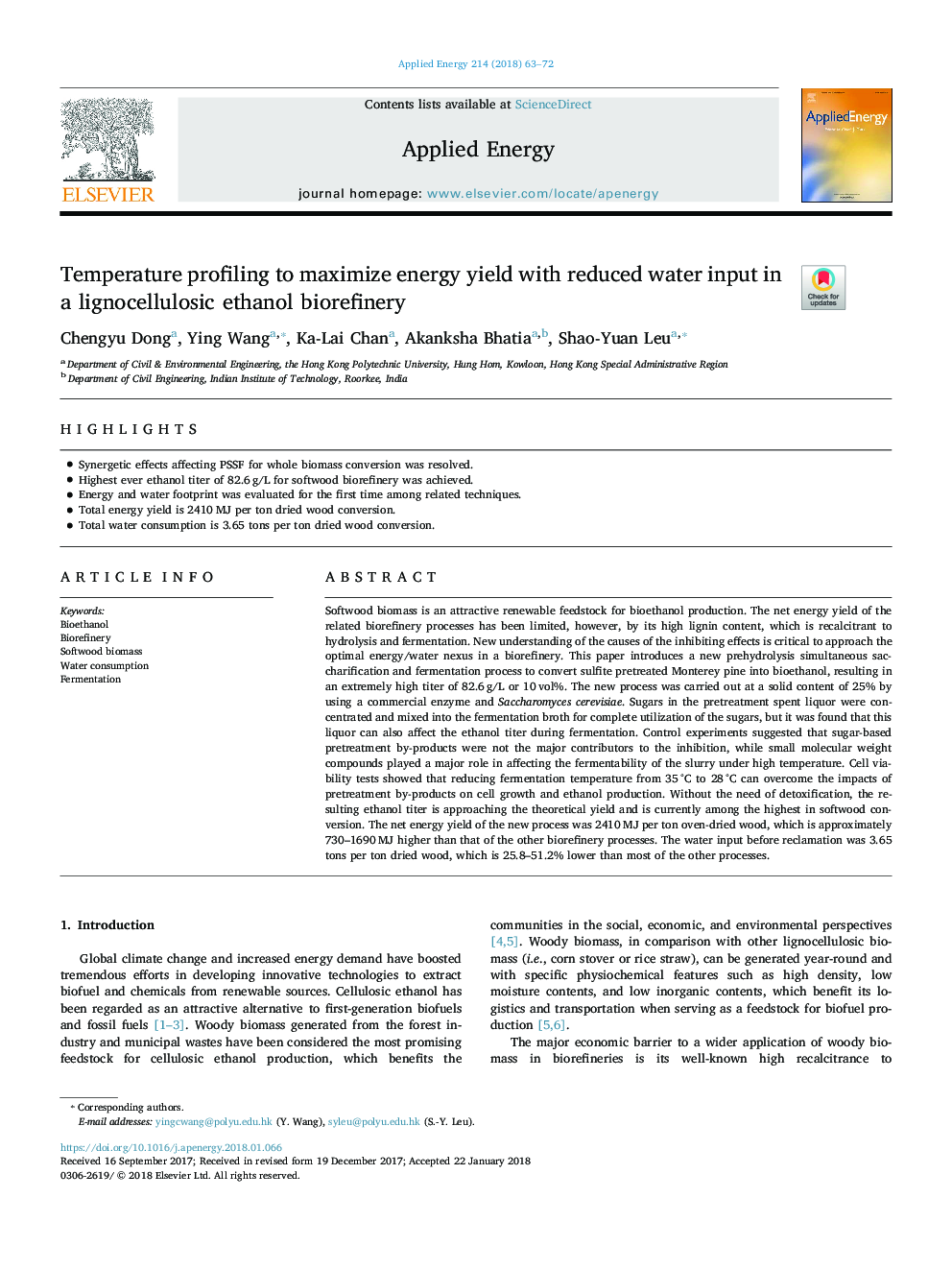| کد مقاله | کد نشریه | سال انتشار | مقاله انگلیسی | نسخه تمام متن |
|---|---|---|---|---|
| 6680697 | 1428076 | 2018 | 10 صفحه PDF | دانلود رایگان |
عنوان انگلیسی مقاله ISI
Temperature profiling to maximize energy yield with reduced water input in a lignocellulosic ethanol biorefinery
ترجمه فارسی عنوان
پروفیل درجه حرارت برای به حداکثر رساندن عملکرد انرژی با کاهش مصرف آب در یک بنزین بنزن لیگنوسلولیزیک اتانول
دانلود مقاله + سفارش ترجمه
دانلود مقاله ISI انگلیسی
رایگان برای ایرانیان
کلمات کلیدی
موضوعات مرتبط
مهندسی و علوم پایه
مهندسی انرژی
مهندسی انرژی و فناوری های برق
چکیده انگلیسی
Softwood biomass is an attractive renewable feedstock for bioethanol production. The net energy yield of the related biorefinery processes has been limited, however, by its high lignin content, which is recalcitrant to hydrolysis and fermentation. New understanding of the causes of the inhibiting effects is critical to approach the optimal energy/water nexus in a biorefinery. This paper introduces a new prehydrolysis simultaneous saccharification and fermentation process to convert sulfite pretreated Monterey pine into bioethanol, resulting in an extremely high titer of 82.6â¯g/L or 10â¯vol%. The new process was carried out at a solid content of 25% by using a commercial enzyme and Saccharomyces cerevisiae. Sugars in the pretreatment spent liquor were concentrated and mixed into the fermentation broth for complete utilization of the sugars, but it was found that this liquor can also affect the ethanol titer during fermentation. Control experiments suggested that sugar-based pretreatment by-products were not the major contributors to the inhibition, while small molecular weight compounds played a major role in affecting the fermentability of the slurry under high temperature. Cell viability tests showed that reducing fermentation temperature from 35â¯Â°C to 28â¯Â°C can overcome the impacts of pretreatment by-products on cell growth and ethanol production. Without the need of detoxification, the resulting ethanol titer is approaching the theoretical yield and is currently among the highest in softwood conversion. The net energy yield of the new process was 2410â¯MJ per ton oven-dried wood, which is approximately 730-1690â¯MJ higher than that of the other biorefinery processes. The water input before reclamation was 3.65 tons per ton dried wood, which is 25.8-51.2% lower than most of the other processes.
ناشر
Database: Elsevier - ScienceDirect (ساینس دایرکت)
Journal: Applied Energy - Volume 214, 15 March 2018, Pages 63-72
Journal: Applied Energy - Volume 214, 15 March 2018, Pages 63-72
نویسندگان
Chengyu Dong, Ying Wang, Ka-Lai Chan, Akanksha Bhatia, Shao-Yuan Leu,
